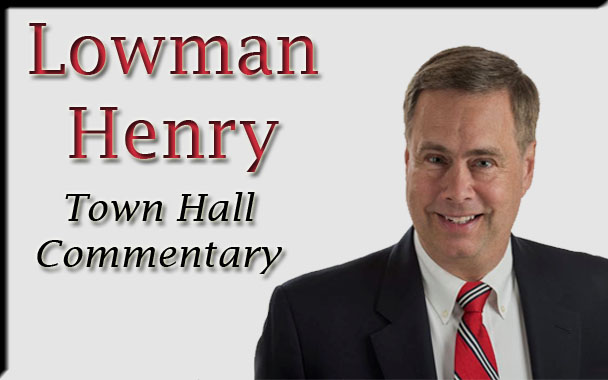Budget Wars: A New Hope

It is June and for most Pennsylvanians that means the start of the summer vacation season. But under the Capitol dome in Harrisburg it is the one month of the year when the governor and lawmakers get serious about crafting a new state budget.
The state’s fiscal year runs from July 1st to June 30th and it is the primary constitutional responsibility of the governor and the legislature to have a new budget in place when the sun rises over Penn’s Woods on the first morning of July.
That has never happened during Governor Tom Wolf’s tenure. Three years ago he presided over the longest budget stalemate in state history. That would be hard to top, but last year the General Assembly passed a spending plan, but not a revenue plan. That backwards approach to budgeting resulted in yet another state budget crisis.
Two factors drive the annual budget drama: state government spends beyond it means; and voters have simultaneously elected, to quote the Huffington Post, “the most liberal governor in America,” and one of the most conservative legislatures in modern state history.
Governor Wolf triggered the budget crisis his first year in office by proposing tax increases greater than the sum total of tax hikes proposed by the governors of all 49 other states. Republicans – basking in historic majorities – dug in and successful fought off most of the governor’s proposed tax hikes.
Wolf is nothing if not persistent. Each year, including this year, he proposes more and more taxes including a job crushing so-called severance tax on Marcellus shale drillers. House Republicans have stood strong against the governor’s spend-tax-spend more agenda, but often have had to defend their flank against Senate Republican leadership which tends to cave in to significant parts of the governor’s agenda.
At the heart of the political disagreement is the path each has taken to their current offices. Governor Wolf tacked to the extreme Left to win his primary four years ago and thus is working to deliver to those in his party addicted to government spending. Republicans meanwhile run on a platform calling for fiscal restraint and lower taxes. Most, but not all, fight for those principles when they arrive in Harrisburg.
Then there is the problem of state government spending beyond our means. Hundreds of millions of dollars are added each year to the public education budget with no corresponding demand for improved performance. The governor vetoes even modest efforts to reform an exponentially growing welfare system. And none of this addresses a public pension system that is over $60 billion underfunded.
All of this leaves precious few resources for dealing with serious problems like confronting the opioid crisis and providing the money needed to harden security at school buildings across the state.
Add into this bubbling cauldron of overspending and competing political dynamics gubernatorial and legislative elections and you might expect yet another missed budget deadline this year. Oddly enough this just might be the year when the job gets done on time.
Yes, Governor Wolf has again proposed big spending increases. Yes, he once more is calling for a punitive severance tax. And, yes, even Republicans have some new spending they would like to put into the budget.
Whereas in the past proposed spending has exceeded project income by billions this year the gap is a few hundred million. The exact number fluctuates and has been impacted by a recent court decision, but the combatants start out closer together than in past years.
Federal tax cuts and the booming Trump economy have resulted in a significant revenue surplus in the current fiscal year meaning budget-makers will not have to backfill a deficit and will have more money to work with in the 2018-2019 fiscal year.
While sometimes a budget stalemate is politically helpful in that politicians can go back to their constituents and claim they are “fighting for them” in Harrisburg, the pain caused by the budget battles of the past three years has most involved in the process wanting to get the job done on time with as little fuss as possible.
Both sides are hoping for an advantage by putting off the big battles until next year. Republicans see Scott Wagner in the governor’s office, and Democrats pine for a renewed mandate for Tom Wolf. Either way, it appears like Pennsylvanians will be spared Episode IV of Budget Wars.
(Lowman S. Henry is Chairman & CEO of the Lincoln Institute and host of the weekly Lincoln Radio Journal. His e-mail address is [email protected].)
Permission to reprint is granted provided author and affiliation are cited.






